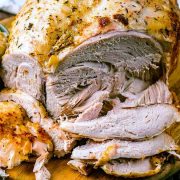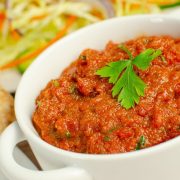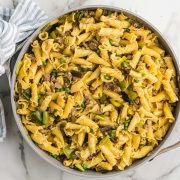As a dog owner, the desire to share delicious treats with your furry friend is only natural. Rice pudding, with its creamy texture and subtle sweetness, might seem like a tempting option. However, before you indulge your canine companion in this human delicacy, it’s crucial to understand the facts surrounding the question: Can dogs eat rice pudding? In this comprehensive guide, we will unravel the mysteries, present you with five key facts, and equip you with the knowledge needed to make informed decisions about your dog’s diet.
Understanding the Basics: Can Dogs Eat Rice Pudding?
Before diving into the specifics, let’s address the fundamental question: Can dogs eat rice pudding? The answer isn’t a straightforward yes or no. Dogs, by nature, have different nutritional needs than humans. Rice pudding primarily consists of rice, milk, and sugar. While rice is generally safe for dogs, the inclusion of dairy and sugar raises concerns. In moderation, some dogs may tolerate rice pudding, but several factors must be considered.
Nutritional Breakdown: Can Dogs Eat Rice Pudding?
Delving into the nutritional aspects is crucial to assess the potential benefits or risks for your canine friend. While rice provides carbohydrates for energy, milk introduces calcium and protein. However, the sugar content can be problematic, leading to weight gain and other health issues. It’s essential to consider your dog’s overall diet and nutritional requirements before incorporating rice pudding into their meals.
Portion Control Matters: How Much Can Dogs Eat Rice Pudding Safely Consume?
Moderation is key when it comes to feeding your dog any human food, and rice pudding is no exception. Too much of this sweet treat can lead to digestive issues, obesity, and other health concerns. The size and breed of your dog play a role in determining an appropriate portion size. Consulting with your veterinarian to establish suitable serving sizes based on your dog’s specific needs is a wise approach.
Health Considerations: Can Dogs Eat Rice Pudding with Certain Conditions?
Dogs with existing health conditions, such as lactose intolerance or diabetes, may face heightened risks when consuming rice pudding. Lactose-intolerant dogs lack the enzyme needed to digest dairy, while the sugar content can be problematic for those with diabetes. Always consider your dog’s individual health profile and consult with your vet before introducing new foods, especially those with potentially adverse ingredients.
Risks and Side Effects: Can Dogs Eat Rice Pudding to Develop Adverse Reactions
While rice pudding may seem innocuous, it’s crucial to be aware of potential risks and side effects. Dogs may experience gastrointestinal upset, including vomiting and diarrhea, due to the rich and sugary nature of the pudding. Monitoring your dog for any adverse reactions after consumption is vital. If you observe any negative symptoms, it’s advisable to refrain from offering rice pudding in the future.
Alternatives to Rice Pudding: Can Dogs Eat Rice Pudding and Enjoy Safe and Tasty Treats?
Considering the potential risks associated with rice pudding, you might be wondering about safer alternatives. Fortunately, there are several dog-friendly treats that can satisfy your pup’s cravings without compromising their health. Opt for plain, cooked rice as a side dish or explore specially formulated dog treats designed to cater to their nutritional needs. Always prioritize treats that align with your veterinarian’s recommendations.
Can Dogs Eat Rice Pudding?: Can Dogs Transition to This Treat Gradually?
If you’re determined to share the joy of rice pudding with your dog, consider introducing it gradually and in small amounts. Monitor your dog’s reaction and be cautious of any signs of discomfort or adverse effects. This approach allows you to assess your dog’s tolerance to the ingredients in rice pudding without overwhelming their system.
Monitoring Your Dog’s Weight: Can Dogs Eat Rice Pudding? Can Rice Pudding Contribute to Canine Obesity?
Weight management is a critical aspect of canine health, and certain human foods can contribute to obesity in dogs. Due to the calorie-dense nature of rice pudding, it’s essential to factor in the additional calories when considering your dog’s overall diet. Regular monitoring of your dog’s weight and adjusting their food intake accordingly can help prevent obesity-related health issues.
Can Dogs Eat Rice Pudding? Can Rice Pudding be Homemade for Dogs?
Homemade treats offer the advantage of ingredient control, allowing you to tailor recipes to your dog’s specific needs. If you’re keen on sharing rice pudding with your furry friend, consider preparing a homemade version. Use dog-friendly ingredients, such as plain rice, lactose-free milk, and a natural sweetener like honey. Always consult with your veterinarian for guidance on suitable homemade treats for your dog.
Conclusion
In conclusion, the question of whether dogs can eat rice pudding requires careful consideration. While it is possible for some dogs to enjoy this sweet treat in moderation, the potential risks associated with ingredients like dairy and sugar cannot be ignored. Understanding your dog’s individual needs, consulting with your veterinarian, and practicing moderation are key factors in making informed choices about incorporating rice pudding into your dog’s diet.
FAQs
Q1: Can dogs eat rice pudding?
Not all dogs can safely consume rice pudding. Factors such as age, health condition, and dietary restrictions play a significant role. It’s essential to consult with your veterinarian to determine if rice pudding is suitable for your specific dog.
Q2: Are there any health benefits to feeding dogs rice pudding?
While rice provides carbohydrates and milk contributes protein and calcium, the sugar content in rice pudding can outweigh potential benefits. It’s crucial to weigh the nutritional aspects carefully and consider alternative treats that offer more balanced nutrition.
Q3: How can I tell if my dog is intolerant to rice pudding?
Watch for signs of gastrointestinal upset, including vomiting and diarrhea. If your dog exhibits these symptoms after consuming rice pudding, it may indicate an intolerance. Consult with your veterinarian to discuss the best course of action.
Q4: Can Dogs Eat Rice Pudding and Also puppies?
Puppies have specific nutritional requirements for growth, and introducing rich or sugary foods like rice pudding may not be suitable. It’s advisable to stick to a well-balanced puppy diet and consult with your veterinarian before offering any new treats.
Q5: Are there specific homemade rice pudding recipes for dogs?
Yes, you can prepare homemade rice pudding for dogs using dog-friendly ingredients like plain rice, lactose-free milk, and natural sweeteners. However, always consult with your veterinarian to ensure the recipe aligns with your dog’s dietary needs.
Also read: Morrison’s Fish Market Secrets: 9 Tips for Choosing the Freshest Catch














